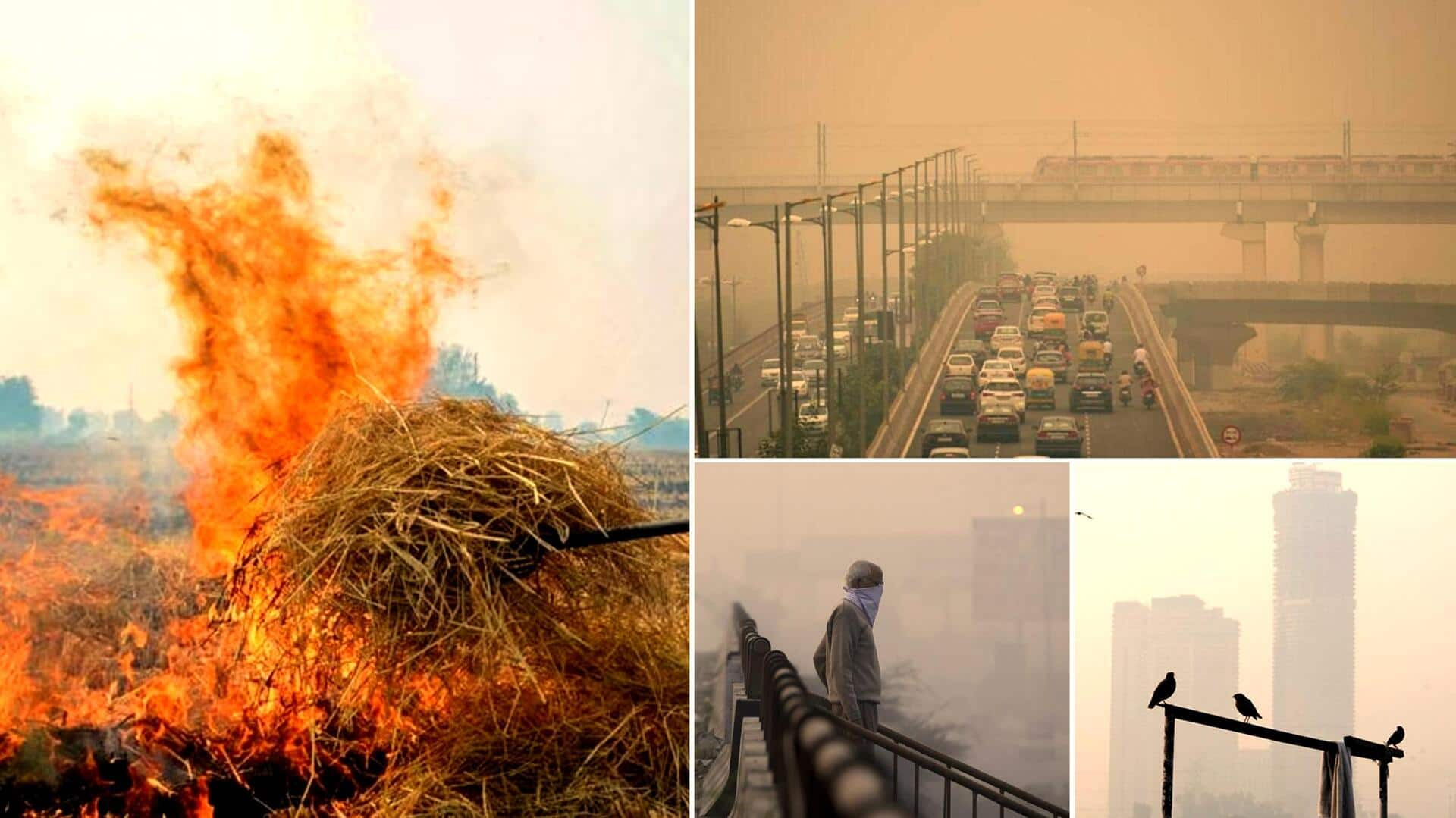
Delhi-NCR's air quality might worsen as stubble burning begins
What's the story
Delhi saw a decline in air quality on Saturday, with the average air quality index (AQI) reaching 303, placing it in the "very poor" category. Meanwhile, neighboring regions, including Haryana and Uttar Pradesh, experienced AQI levels above 300, according to the System of Air Quality and Weather Forecasting and Research (SAFAR). Unfavorable weather conditions and increased stubble burning are expected to exacerbate the situation in the coming days.
Facts
Peak pollution period approaching
According to the Delhi Pollution Control Committee's analysis, the capital sees peak pollution between November 1 and November 15, coinciding with the height of stubble-burning incidents in Punjab and Haryana. Every year, unfavorable weather, firecracker emissions, paddy straw burning, and local pollution sources contribute to hazardous air quality in Delhi-NCR around Diwali. To address this issue, the Delhi government introduced a 15-point action plan for the winter, focusing on tackling dust pollution, vehicle emissions, and the open burning of garbage.
Details
Measures taken by Delhi government to curb air pollution
On Thursday, the Delhi government initiated the "Red light on, Gaadi off" campaign to reduce vehicle emissions. Moreover, Environment Minister Gopal Rai said an additional eight pollution hotspots had been identified, and specialized teams will be assigned to monitor pollution sources. The government also plans to utilize suppressant powder to minimize dust pollution. The Commission for Air Quality Management recommended raising parking fees and expanding CNG transport services as part of Stage II of the Graded Response Action Plan (GRAP).
What Next?
Mumbai also experiencing poor air quality
Mumbai, another major metro city in the country, also reportedly experienced poor air quality in October, with AQI levels reaching 200 (poor) in some areas on Sunday. The city also saw its particulate matter (PM) and temperature reach a four-year high for October. The decline in air quality has been attributed to a number of factors, including construction projects, refineries, power plants, and chemical facilities.
Insights
Health risks posed by deteriorating air quality
Short-term exposure to air pollutants can cause the acute exacerbation of COPD (Chronic Obstructive Pulmonary Disease), cough, shortness of breath, wheezing, asthma, and respiratory disease. The long-term effects of air pollution include chronic asthma, pulmonary insufficiency, cardiovascular diseases, and cardiovascular mortality. In February, IQAir ranked Mumbai as the second-most polluted city globally in terms of AQI, followed by Delhi and Kolkata. In 2022, Delhi was ranked fourth among the world's most polluted cities.